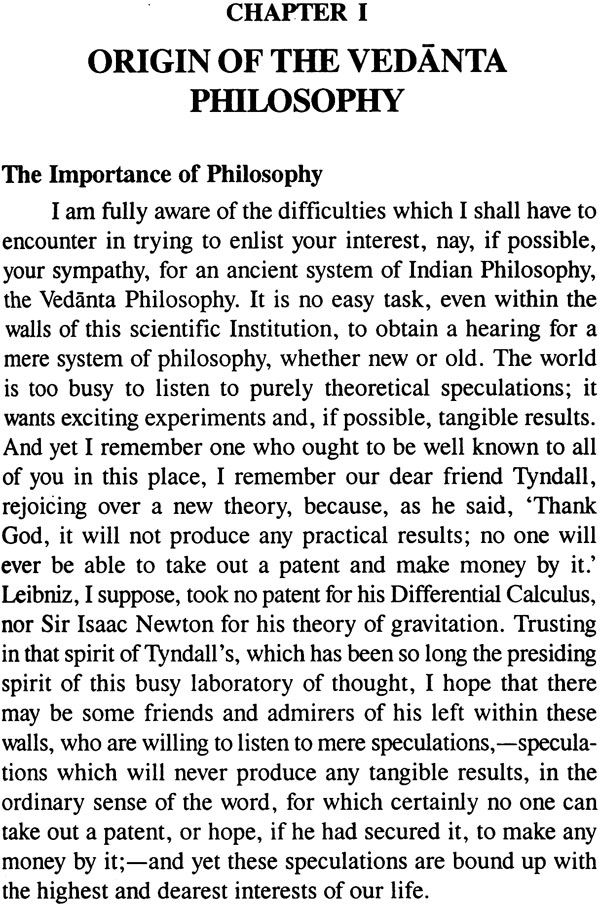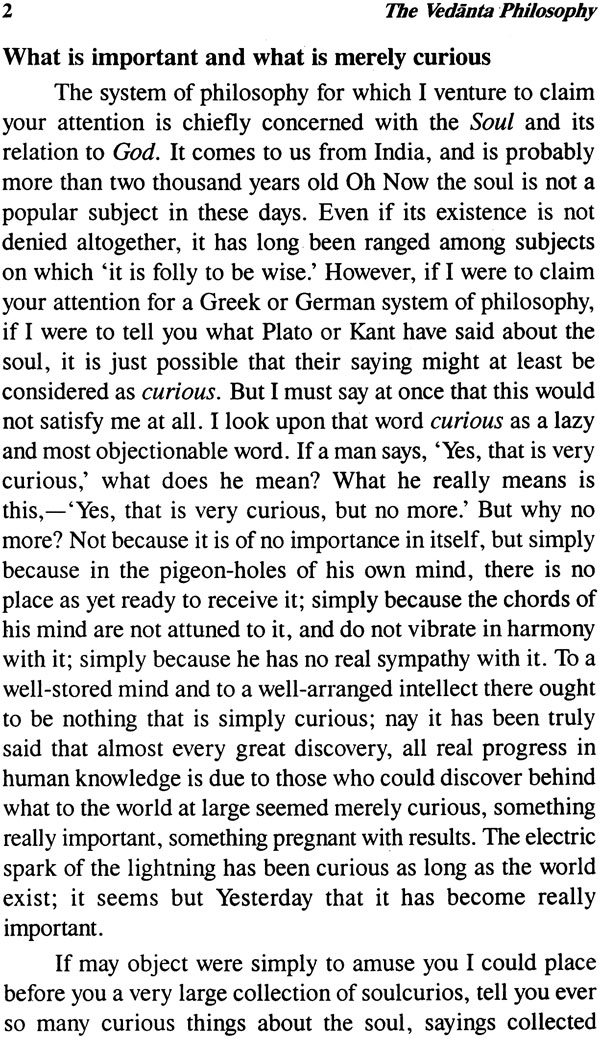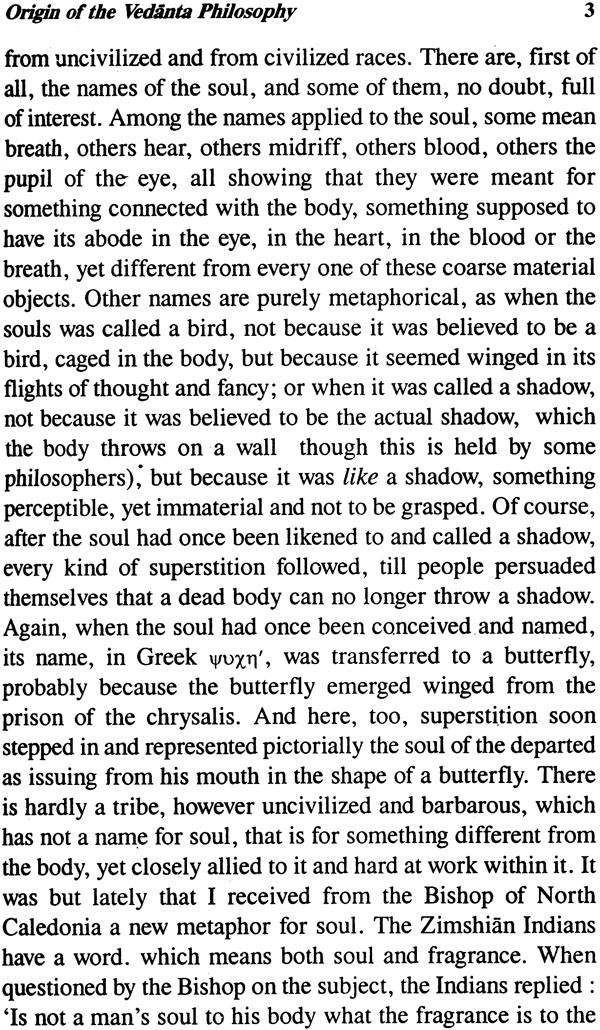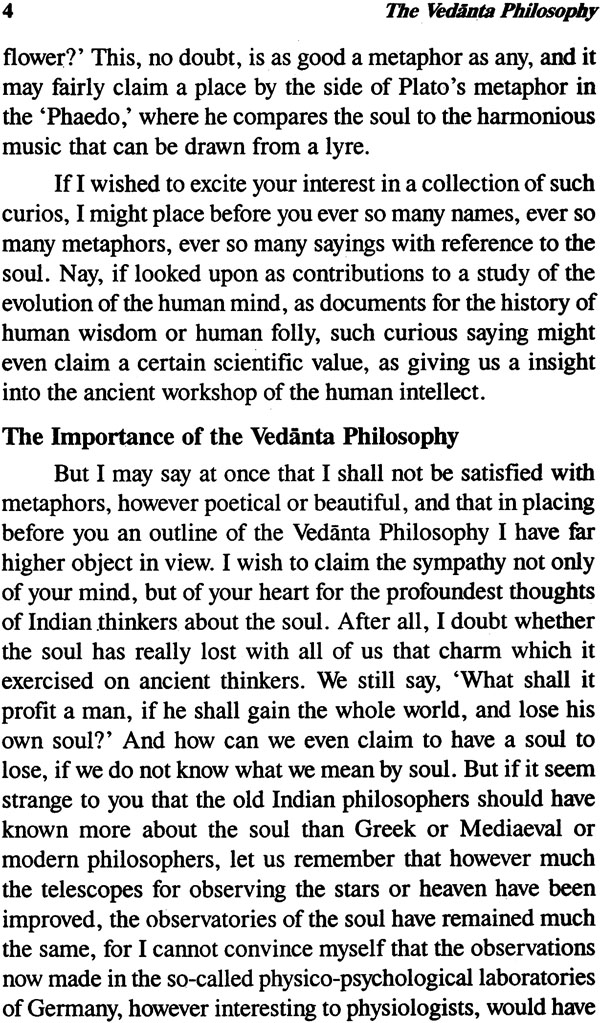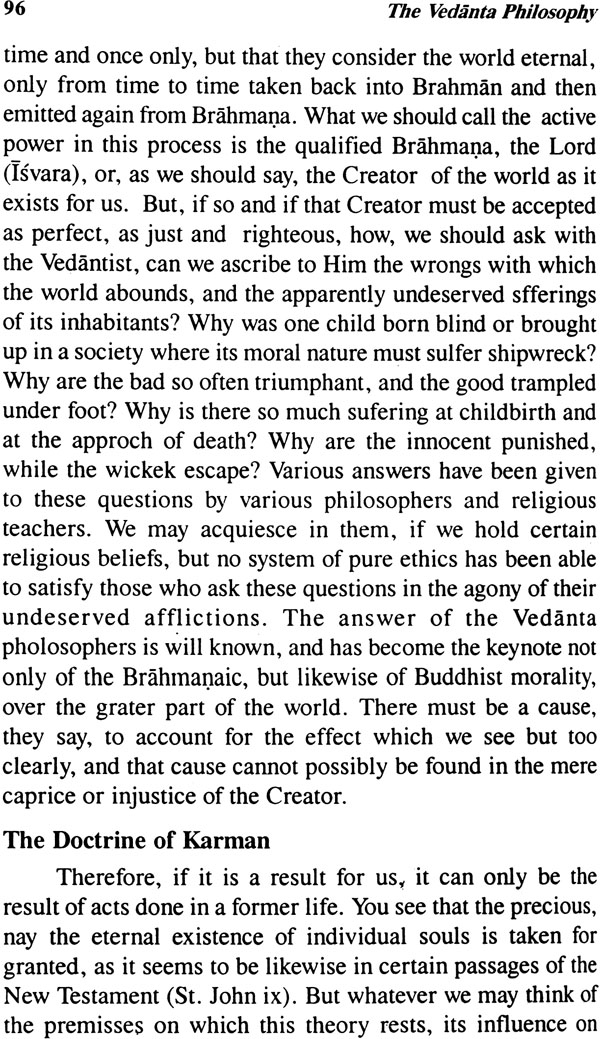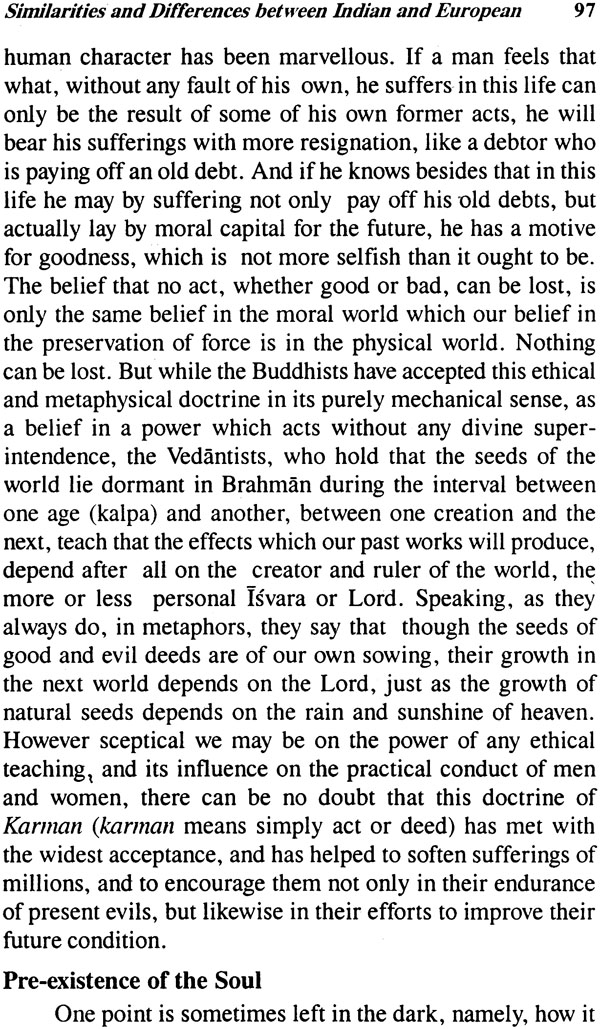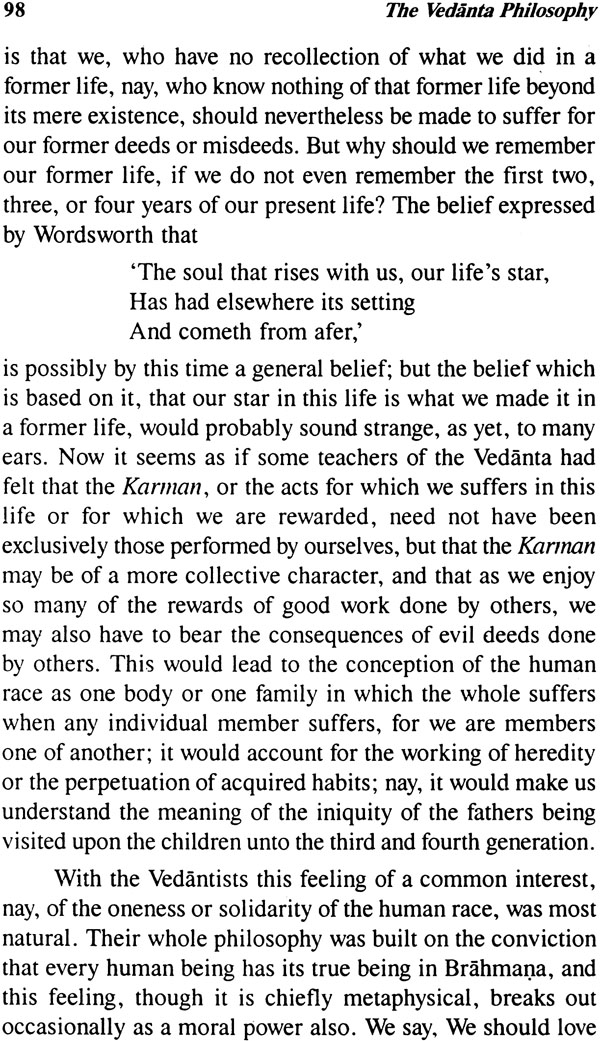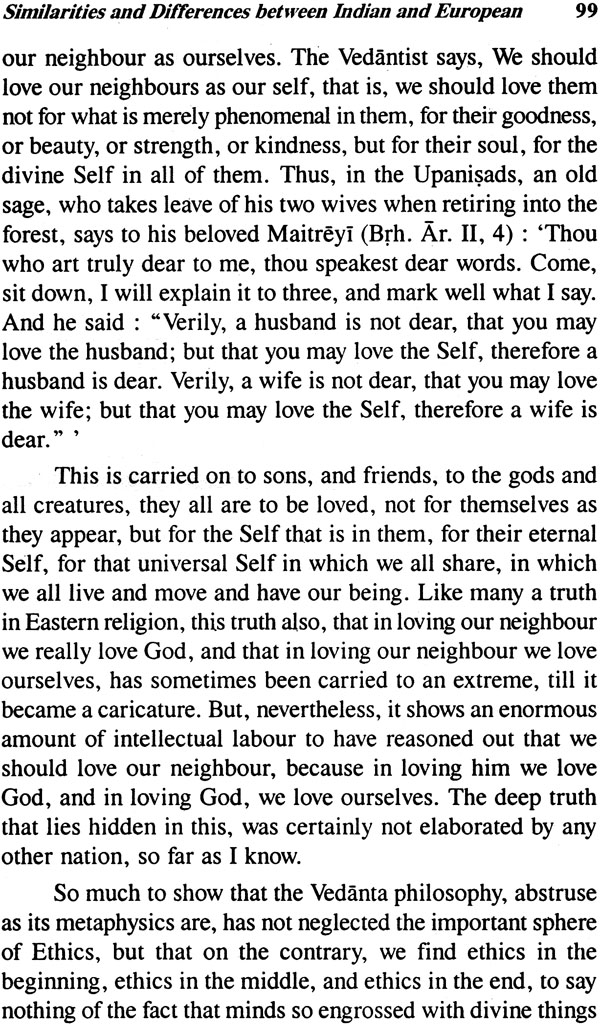| Chapter 1.
| Origin of the Vedanta Philosophy
| |
| | The Importance of the Philosophy | 1 | |
| | What is important and what is merely curious | 2 |
| | The Importance of the Vedanta Philosophy | 4 |
| | Opinions of the Vedanta by Schopenhauer, Sir W. Jones, Victor Cousin, F. Schlegel | 5 |
| | The Vedanta, both Philosophy and Religion | 7 |
| | The Upanisads as Vedanta | 9 |
| | The Four Stages of Life | 11 |
| | Relation of the Soul (Atman) to Brahmana (the Paramatman) | 12 |
| | Unsystematic Character of the Upanisads | 13 |
| | Growth of Religious and Philosophic Thought before the Upanisads | 14 |
| | Belief in the God | 16 |
| | Two Forms of the Vedanta | 17 |
| | The Upanisads treated as Revealed, not as Historical Books | 18 |
| | Moral Preparation for the Study of the Vedanta | 21 |
| | Mistrust in the Evidence of the Senses | 24 |
| | Metaphorical Language of the Upanisads | 24 |
| Chapter 2.
| The Soul and God
| |
| | Extracts from the Upanisads | 28 |
| | I. From Katha Upanisad | 28 |
| | II. From the Maitrayana Upanisad | 33 |
| | Sankara's Analysis of Subject and object | 36 |
| | The Inheritance of the Vedanta | 42 |
| | No Esoteric Vedanta | 42 |
| | Relation between the Higher Brahmana and the Lower Brahmana | 49 |
| | Relation between the Higher Atman and the Living Atman | 51 |
| | Different Views of the Soul in Indian Philosophy | 52 |
| | The Upadhis as the cause of difference between the Soul and God | 54 |
| | The Psychology of the Vedanta | 55 |
| | Our Mind is not our Self (Atman) | 57 |
| | The Upadhis due to Avidya | 57 |
| | Nescience (Avidya) destroyed by Knowledge (Vidya) | 59 |
| | How the Soul can be one with God | 60 |
| Chapter 3.
| Similarities and Differences between Indian and European Philosophy
| |
| | Strangeness of Eastern Philosophy | 64 |
| | General Interest of Indian Philosophy | 65 |
| | Critical Treatment of Oriental Literature | 66 |
| | The Sacred Syllable Om | 68 |
| | Whatever was Old became Sacred | 69 |
| | Books for the Study of the Vedanta | 70 |
| | Coincidences. Spinoza's Substantia' | 72 |
| | The Meaning of Real | 74 |
| | The Nature of Avidya and Maya | 75 |
| | Colebrooke n Maya | 75 |
| | Sir W. Jones on the Vedanta | 77 |
| | The Two Brahmans are One | 78 |
| | The Germs of the Vedanta in the Upanisads | 79 |
| | The Knowledge of the Brahmana | 81 |
| | Names and Forms the Objects of Brahmana's knowledge | 82 |
| | Thought and Language Inseparable | 82 |
| | Coincideness between Names and Forms and the Greek Logas | 83 |
| | Speech as a Creative Power to the Veda | 84 |
| | Similarity with the Old Testament Wisdom | 85 |
| | Did Brahmana means Word? | 86 |
| | Brahmana derived from the same Root as Verbum and Word
| 87 |
| | Names and Forms the Connecting-link between Brahmana and the World | 88 |
| | The Gods of other Religions | 90 |
| | Names and Forms the Product of Avidya | 92 |
| | The Vedanta in Political Life | 94 |
| | The Ethics of the Vedanta | 95 |
| | The Doctrine of Karman | 96 |
| | Pre-existence of the Soul | 97 |
| | Recapitulation | 100 |

